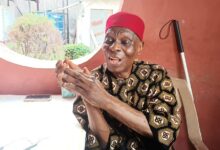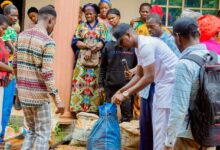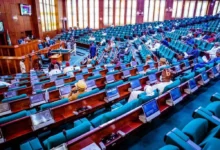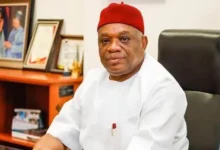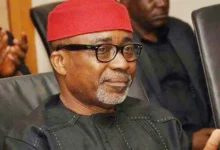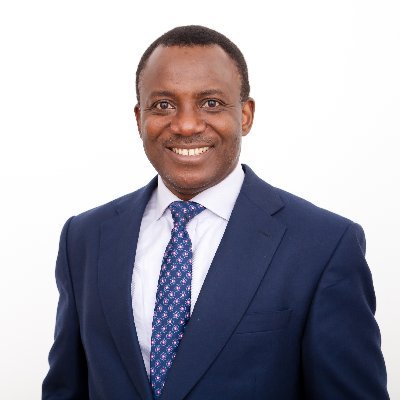
Prof. Kenneth Amaeshi, Chief Economic Adviser to Imo State Governor, discusses with Sami Olatunji how federal and state governments can manage the hard environment to raise income and meet residents’ needs.
The Imo State government’s largest economic challenge?
Imo State has many abilities and human capital. The state produces among the most graduates in the nation. Unfortunately, Imo State cannot absorb all its abilities, leaving many graduates unemployed. Imo State has few relatively large firms, and occasionally the talents available do not match market needs. All of these factors increase socioeconomic tensions. I will argue that unemployment is a major issue in the state that can lead to other social evils.
Does this issue have particular solutions?
The Executive Governor of Imo State, Senator Hope Uzodinma, CON, sets an ambitious objective of Reconstruction, Rehabilitation, and Recovery at the start of his term. The 3R agenda addresses state unemployment as a rehabilitation issue. The Governor’s vow to train 300,000 Imo youths in digital skills for the global digital economy over three years starting in January 2023 shows his focus on youth economic development. Skillup-Imo program.
The goal of this potentially Africa’s greatest program is to help Imo State’s youngsters profit from the global digital economy. This could be self-employment or other empowering work. Imagine Imo State youths supporting global corporations in online maintenance, database administration, process outsourcing, etc. These possibilities are easily achievable in Imo State.
Some of these teenagers can make more than minimum wage in hard currency through self-employment. The number also establishes Imo State as Africa’s digital skill powerhouse. The Governor is dedicated about achieving the Global Imo Agenda, which includes this.
Even if the multiplier effect is as low as four extra people per candidate (i.e., a couple with two children), which is the worst-case scenario, the program could economically benefit at least 1.2 million Imo citizens by training and engaging 300,000 youths. Immeasurable spillover impacts to other industries and activities are expected.
The government has trained and equipped 5,000 Imo youths with Industry 4.0 tech skills and startup kits to trade anywhere in the world in SkillupImo Cohort 1, and 15,000 youths are being trained in basic, intermediate, and advanced digital skills in Cohort 2.
What else is done to combat unemployment in Imo State?
Recently, the Imo State government encouraged every kindred/extended family to start a business to reduce unemployment and empower people economically. This is the One-Kindred-One-Business Initiative. OKOBI promotes economic cooperation and family wealth building. OKOBI, inspired by the Igbo terms Oke, meaning great or real, and Obi, place of residence or family, recognizes the value of kinship relationships in economic development.
OKOBI lets family members work together on entrepreneurship. OKOBI encourages relatives to share resources, expertise, and economic possibilities by leveraging shared values, trust, and ancestral links. OKOBI helps kindreds develop sustainable enterprises, generate wealth, and strengthen their communities’ economies through strategic partnerships, mentorship, and funding.
This technique, which follows the social structure of the Igbo people through the “Umunna” and “Umuada”, has the ability to address unemployment and poverty from the grassroots level.
Hard infrastructure for market liberalisation and employment creation has also been significantly funded by the government. Massive road networks support businesses and provide jobs. In May, the Governor commenced the dredging of ORASHI River to the Atlantic Ocean, which is already attracting international attention. This would open up Imo State to the globe, attract large investments, and create many jobs.
One Kindred One Business Initiative seems intriguing, but what makes it unique?
OKOBI operates in several ways. Outright business ownership is possible for relatives. People can also co-invest in a family firm. Thus, related members become shareholders while honoring entrepreneurship. OKOBI supports networks of friends, social club members, and coworkers in addition to familial bonds.
The capacity to work together efficiently and effectively to achieve a common objective without leaving anyone behind is most important. This version of OKOBI is based on nwanne di na mba, which means brotherhood and sisterhood are defined by similar interests, values, and worldviews rather than filial relationships. Locals are interested in OKOBI, with relatives launching farming, service, and industrial firms. Some emerging kindred firms target local customers, while others use Nigeria’s diaspora to explore overseas markets. O
KOBI may improve local communities, formalize grassroots entrepreneurial enterprises, grow the economy, and increase revenue for the government. OKOBI can reverse these squandered opportunities.
How is the state administration helping its people after fuel subsidy reduction and other FG policies?
Subsidies help solve social problems, notably welfare difficulties. They are not lasting fixes. Subsidies can distort the market, go into the wrong places, and hinder the government’s ability to aid people holistically if they are not properly calibrated and applied.
Based on this perspective, the former fuel subsidy in Nigeria fell short of its holistic social welfare aspirations due to leakages, undesirable opportunities, and financial overburdening that prevented the government from providing essential services for collective social welfare.
Additionally, it appears to damage the nation’s saving ability and investments in education, health, and infrastructure. The removal is painful, but I regard it as a short-term sacrifice for a better future. The Federal and Imo State governments have proposed ways to mitigate short-term effects. Next, use these ideas and observe the results.
For instance, Imo State recently raised government servant salaries. The government has also provided free medical treatment for state personnel and transportation to the public. However, implementation can be difficult. It incorporates social learning and exploration.
As the government implements these concepts, it may need to adjust based on lessons learned. Since it is new territory for the government and the people, everyone should be patient and remember that positive transitions, like childbirth, often involve pain.
What advise would you give the federal government?
Given that this is a socio-economic experiment with ongoing effects, it helps to be flexible with policies and tactics. I see the federal government’s flexibility. There is much to learn as the process evolves, so this is not a mistake or unneeded policy somersault.
We will be OK once policies and practices are people-oriented. Opposition politicians and social critics can keep the government on its toes. Democracy has such beauty.
Not a harmonious choir, but one in conflict. These ongoing battles contribute to democracy’s innovation. It is odd to consider them abnormal or undesired. Democracy requires accepting its conflicts. True Democrats and politicians accept this and live with it.
How can governments at all levels increase revenues without harming the public?
I support entrepreneurship. I disagree that only non-State actors can be entrepreneurs. The government can be entrepreneurial. This is central to the Entrepreneurial State Movement espoused by scholars and politicians. Business-like activity can generate state money. Taxes and levies are not the sole government revenue sources.
Many natural resource-rich nations do not tax their citizens substantially. The government could increase income and lower taxes and levies by focusing more on entrepreneurship through investments and other business-like activities. Another method is to decrease leakages, expand the tax net, and improve efficiency and confidence through accountability.
This accountability point is crucial. In my recent study on tax and citizen attitudes in Nigeria, we found that Nigerians are not inherently hesitant to pay taxes. However, they are tired of paying into black boxes and dark holes without receiving the advantages of their taxes.
Showing people how their taxes are spent can boost voluntary compliance. Any accountability-focused government should be able to do this. Since His Excellency Senator Hope Uzodinma became governor, Imo State has improved financial accountability. Local and international organizations recognize these improvements. The State received almost $12 million from the World Bank lately for transparency and resource management.
How is Imo State assuring company growth, especially with the sit-at-home danger affecting many businesses?
Enabling business environment is overused. I think the government and non-State players should provide hard infrastructure (roads and telecommunication enablers) and soft infrastructure (rule of law, decent education, fair taxes, etc.). Perverse incentives and misaligned interests often induce business environment neglect. This agenda can be driven with political determination and a good leader. Not rocket science.
The Governor of Imo State has prioritized the development of rural and urban highways, including the Owerri-Orlu and Owerri-Okigwe roads, which are complete, and the Owerri-Mbaise-Umuahia route, which is nearing completion. The roads have improved transportation, raised property value, and generated new economic opportunities.
The Governor also established Nigeria’s first Ministry of Digital Economy and E-Government to digitalize the state. Digital Literacy and Skill, Solid Infrastructure, Service Infrastructure, Advocacy, Monitoring and Evaluation, Collaboration, and Partnership are the six strategic pillars of the Imo Digital Economy Agenda 2022-2026.
This ministry must offer robust telecommunication infrastructure in the State to support the Global Imo Agenda as Africa’s digital hub. The government’s “connected IMO Initiative” is a PPP with Heartland FibreOptics Nig. Ltd. to provide broadband fiber optics infrastructure across the 27 LGAs with internet access at schools, markets, LGA head offices, churches, hospitals, community centers, and business districts. To advance the state’s smart and inclusive economy.
Multiple levies and taxes sometimes bother businesses. The Governor has banned all tax and levy collectors save the Imo State Inland Revenues Services to avoid confusion and complaints. To retain investment, laws and policies are constantly changed. The Governor recently announced a N5 billion revolving loan for farmers, many of whom are MSMEs.
How would you describe your function as Imo State’s chief economic adviser?
I applaud Imo State Governor Senator Hope Uzodimma for designating me his and the state’s Chief Economic Adviser. He has allowed me to combine the role with my full-time academic appointments at the University of Edinburgh, UK, where I hold a chair in sustainable business and development, and the European University Institute, Italy, where I hold a chair in sustainable finance and governance. I am a visiting professor at the London School of Economics and the University of Cape Town.
The European Commission High Level Expert Group on sustainable financing in low- and medium-income countries includes me. I can easily volunteer as Chief Economic Adviser with these roles. Senator Hope Uzodimma is also simple to work with. He is an idea-person who believes ideas rule the world. He has been open to innovative ideas and given me the resources and support I need to succeed. One must be close to Imo State to appreciate its positives.
Above all, the Governor has championed and pioneered these concepts and activities. My principal responsibility is to implement those within my remit. I have also had the uncommon chance to apply some of my academic theories. Since academia is still my major constituency and community of practice, this theory-practice combo should make me a better academic. I am grateful to His Excellency, Senator Hope Uzodimma, for this rare chance to serve Ndi Imo as Chief Economic Adviser.
What is your Imo State vision beyond your role?
My Imo State vision matches the Governor’s 3R Agenda and Global Imo Agenda. That was one reason I joined his team. Imo State hopes to become self-sufficient and a global power with full employment. This vision drives Imo State’s industrialization policy, launched in November 2022, the Imo Development Plan, which will be launched soon, SkillUPImo, the massive development of road networks, the dredging of ORASHI river, and the One-Kindred-One-Business Initiative (OKOBI). However, I think holding a position is not enough.
What one does with the position counts most. Since joining this post in January 2022, I have focused on making the Imo economy function for Ndi Imo and creating legacy practices and institutions. I hope for wisdom and strength to achieve this. We are on track, but time will tell! For now, we move on.







